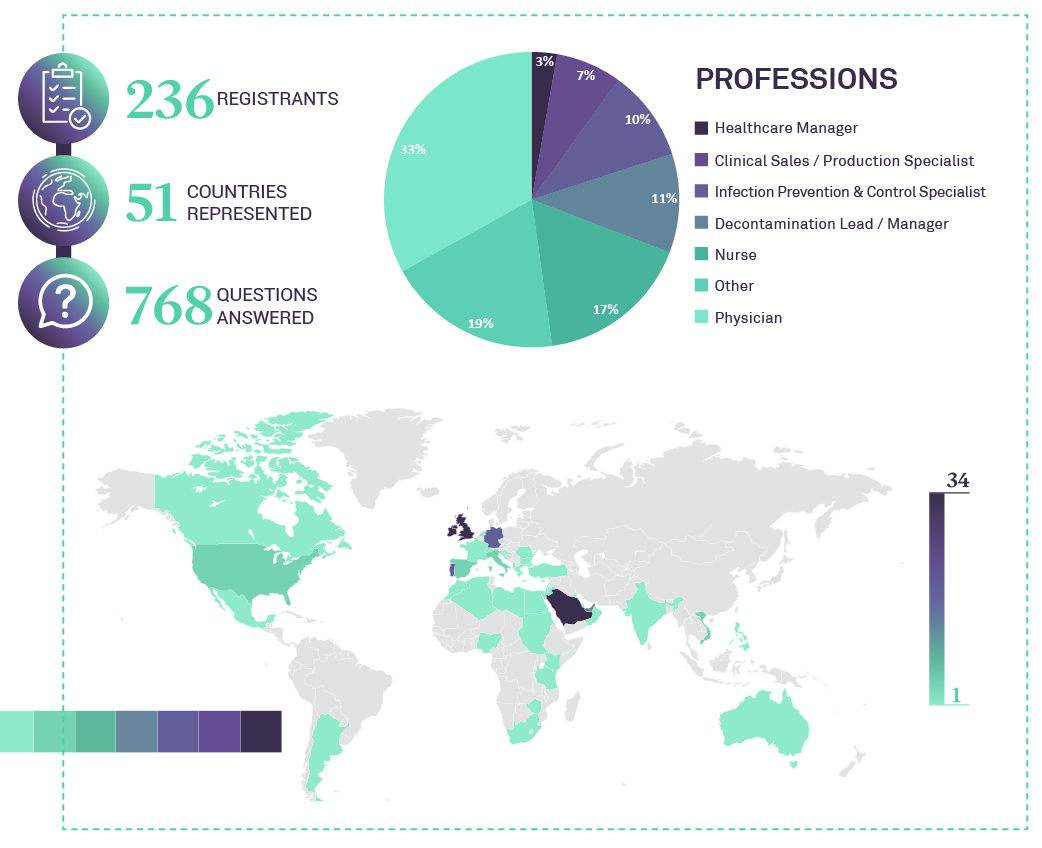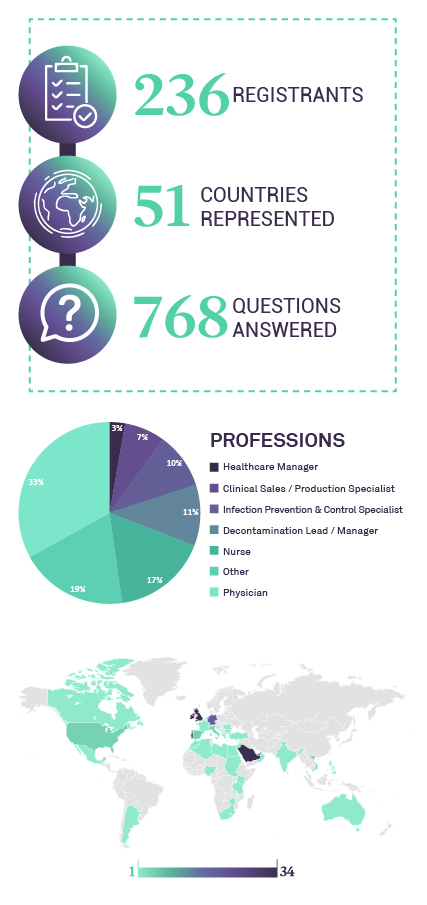Minimally invasive surgery which includes both laparoscopic and robotic surgery has brought new challenges with regards the reprocessing of medical devices. Most of these instruments are not designed to be disassembled for cleaning, disinfection, and sterilization.
Robotics are the new trend because the technology and advanced precision allow to do some procedures with more accuracy (on delicate tasks) and others that where unsuitable for laparoscopy methods. Besides reduce invasiveness and length of stay, those instruments are not prepared to be disassembled for proper cleaning and sterilization. The typical specialties where nowadays is use are common: Cardiac, Colorectal, Gynecology, Orthopedics, Thoracic, and Urology.
Challenges to remove bioburden, char (tissue carbonization) and biofilms from these tight, complex segments of a robotic MD instrument, can block cleaning agents and sterilant from reaching these difficult and intricate areas and impede their action: besides this also can lead to biofilms formation that are very difficult to remove and can contribute to SSIs.
OT staff play a big role on the reprocessing process, since their contribution are key for achieve proper MD cleaning in subsequent actions. OT staff that handle with robotic MD, should be trained on all required steps and competencies to ensure consistence and the efficiency of the process.
Robotic MD come to stay and they will increase exponentially in the near future. We need to address this challenge by implementing quality management processes.
This is the third webinar dedicated to “Challenges of Medical Device Reprocessing”, presented by ASP Continuous Education.
28th of October 2021


• Decontamination Lead at Imperial College Healthcare NHS Trust.
• Decontamination Lead managing decontamination services across the Trust’s five Hospitals (>13000 HCP’s).
• Project managed outsourcing of Sterile Services to a third-party provider.
• Theatre and Sterile services background (> 32 years).
• Robotics Specialist Da Vinci (since 2008) & CMR Surgical Versius (Instructions for Reprocessing).


MESSAGES
- There are challenges with minimal invasive surgeries and robotic instruments and they are extremely expensive
- To improve the cleaning therefore preventing bioburden and biofilms build-up and prevent HCAI’s and SSI’s.
- Follow the manufacturer’s instructions and make sure that future developments are in line with best practice.
- Training, education and competencies are key to make this work.





